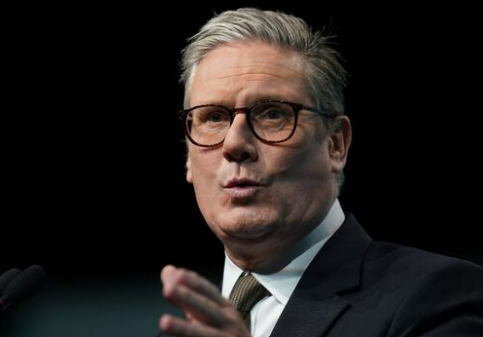I want to thank the new Prime Minister. Having seemingly decided – in Labour’s honeymoon period – to dish out the bitter medicine in the (presumably cynical) hope that all will be forgotten in five years, when the next election is due to take place, Sir Keir Starmer has helped make the case for something I have long argued for: direct democracy.

Keir Starmer has given Jonathan Saxty a reason to be thankful (Image: PA)
This system – mostly obviously exercised in Switzerland – retains MPs, but enables citizens to directly vote down bad laws and policies, and propose their own ones. In Switzerland, a country of nearly 9million people, 50,000 signatures are required to trigger the latter and 100,000 the former.
While Sir Keir may have a point that some reform was needed of the winter fuel allowance, that decision seems overly draconian given how many pensioners will be denied access overnight, even as other areas of the budget are ringfenced and reinforced.
Crucially, the ruthless cynicism of the whole thing – targeting a demographic which tends not to vote Labour in large numbers – while getting this done and dusted long before any looming election, just leaves a bad taste in the mouth. Yet, in a system like ours, there is no contract with the people, meaning there is no means to fire Labour until the next election even if the new government reneges on its promises and offers up policies it never said it would enact.

The Swiss Parliament retains its MPs (Image: Getty)
Labour, after all, did not come to power promising to slash the winter fuel payment or means-test state pensions. Now, don’t get me wrong, there may be a case for both. But this feels like something of a bait-and-switch on the British people: promised one set of goods, only for them to be swapped for another.
Had the UK had a form of direct democracy since 1997 – when Tony Blair came to power – imagine what damage could have been avoided. Much the same argument could be made in most Western countries, even as much of developed Asia has been more responsive to popular pressure and less in need of direct democracy.
If the British people had the ability to challenge bad policy and propose their own ideas then much of what Labour is about to embark upon could be avoided, and many of the things it avoids could be embarked upon (such as actually doing something credible about illegal immigration or mass criminality).
Of course, one major criticism of direct democracy is that – without safeguards – a bare majority can ride roughshod over the minority. Yet, Switzerland – with its human rights safeguards – avoids this. Moreover, in Switzerland, constitutional amendments by popular vote require a double majority: not only a majority of people but a majority of cantons (states).
If Britain had direct democracy, this could mean the most serious changes would require not just a majority of the people to vote for them, but at least three of the four countries of the UK (or a majority of UK regions). It is worth remembering that, without a referendum, Brexit would never have happened.
If Brexit was botched, that is less a reflection on referenda and more on the immaturity of the UK system and an indictment of the politicians tasked with carrying out the peoples’ will. If, as many Remainers argue, the public didn’t know what they were voting for, that demands better education among the public rather than surrendering our fates to our political masters.
Like the outgoing Conservative regime, this Labour administration is already making the case for Swiss-style direct democracy, one where bad laws and policies can be repealed, and popular ideas from the people can be implemented.
True, direct democracy would not please all the people all the time. Maybe a majority of the public would agree with Labour jacking up inheritance and capital gains tax. On the other hand, maybe a majority would vote to restrict mass immigration and deport foreign criminals. Direct democracy would be a case of winning some and losing some, but the upside would be clear.
In this early honeymoon period, Labour has unwittingly demonstrated why Britain – like most Western countries – needs direct democracy, guarding against the duplicity, myopia and self-serving nature of most of its modern politicians. Britain’s first past the post system is already deeply flawed and should give way to the much fairer system of proportional representation.
But, longer-term, the British people ought to have a direct say on how their hard-earned money is spent and what direction their country takes, not just for generations alive today but for those yet to come.



